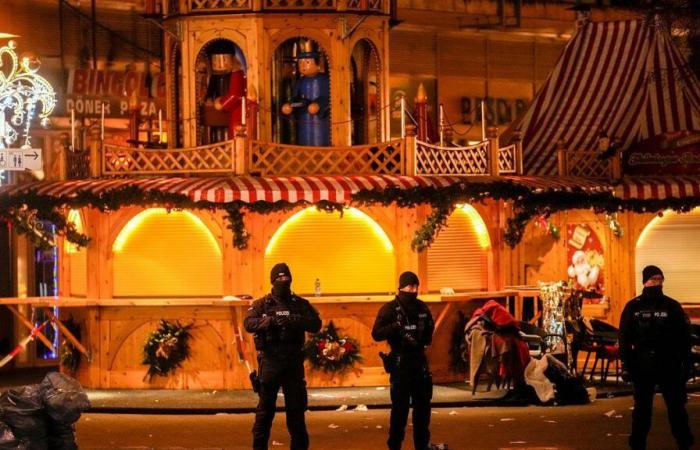Social media users across the Arab world have reacted to the attack on a Christmas market in Germany, sharing unverified claims and reposts.
ADVERTISEMENT
The attack on the Christmas market in the German city of Magdeburg sparked strong reactions in the Arab world.
Several Arab countries, including Saudi Arabia and Qatar, were quick to condemn the attackwhich has already left at least five dead and 200 injured.
Reactions have been mixed on social media, many of them reflecting the ongoing sectarian, ethnic and political polarization in the Arab world.
Suspect's religious views fuel debate
Social media users in Arab countries were quick to discuss the religious background of the alleged perpetrator of the attackemphasizing that he would have renounced Islam and become an atheist, according to messages published on his X account.
Many criticized Western media coverage of the attack, with some saying it did not receive much attention.
Some have claimed that the incident was not sensationalized as is often the case with similar attacks, alleging that when the perpetrator of the attack is Muslim, there is more media coverage. .
The nationality of the author of the attack discussed
Social media highlighted that the suspect, believed to be called Taleb A. according to the German press, was a dissident of the Saudi regime and that Riyadh would have stripped him of his nationality and asked Berlin to extradite him. Germany reportedly refused to do so.
Some even went so far as to claim that Saudi Arabia had warned the authorities there of the danger posed by the suspect.
Unverified content was also released, reporting a WhatsApp conversation dating back more than a year between a young Saudi girl and German security services warning that Taleb A. might carry out an attack in Germany. This content has not been officially verified.
Many social media users have criticized Western countries' treatment of Arab dissidents under the pretext of protecting human rights and freedom of expression, saying that Germany is bearing the brunt of this approach and that The West in general pays the price for its positions.
Iran and the Shiites
In a context of tense relations between Tehran and the majority of Arab countries, some responses attempted to link the Islamic Republic to the ideology of the author of the attack, who is said to be from Qatif, in the east of the Saudi Arabia, where a Shiite minority lives.
One of them said he had a bit of Khomeini in his heart, according to a message posted on X.
Some linked the incident to Iran, which supports the toppled regime in Syria, and claimed it was an attempt to retaliate against Berlin for Germany's protection of Syrian civilians during the civil war that ravaged the country.
Others, however, highlighted the suspect's stance on Iran, saying he published anti-Tehran and pro-Israeli content. He also retweeted messages from Ahmed al-Chara, the leader of the rebels who toppled Bashar al-Assad's regime in Syria.
Opponents of Saudi Arabia
The Nationality of the attacker was also mentioned by opponents of Saudi Arabia on social media.
Some have called for restrictions on Saudi passports in what they say will prevent further terrorist attacks around the world.
Syria
Others have tried to establish a link between the Magdeburg attack and recent developments in Syria and the fall of Bashar al-Assad's regime.
Some social media users accused the attacker of being a supporter of the al-Assad regime and even accused his brother of being behind the attack, saying that Maher al-Assad, who had taken refuge in Iraqi Kurdistan, had contacted sleeper cells in Europe and provided them with money to launch similar operations in several European countries just hours before the Magdeburg incident.**
Supporters of Damascus' new Islamist rulers, led by Ahmad al-Charaa, the leader of Hayat Tahrir al-Sham, have linked the Islamophobic attacker's ideology to calls for secular rule in Syria post-Assad, claiming that “terrorism and apostasy” were two sides of the same coin.
The Magdeburg attack and the Kurdish question
Some supporters of the Kurdish community have tried to link the timing of the attack to Germany's stance towards Syrian Kurds, which calls for them to lay down their arms and reach a peace deal with the new regime in place in Syria.
As for their opponents, they claim that the attacker was a supporter of the PKK and the Syrian Democratic Forces (SDF) in Syria.
Although German authorities have said it was an individual act, it appears that some are trying to cover each attack under a sectarian or political guise, with the incident reflecting a high level of polarization and tension in a region torn by war and political unrest.






